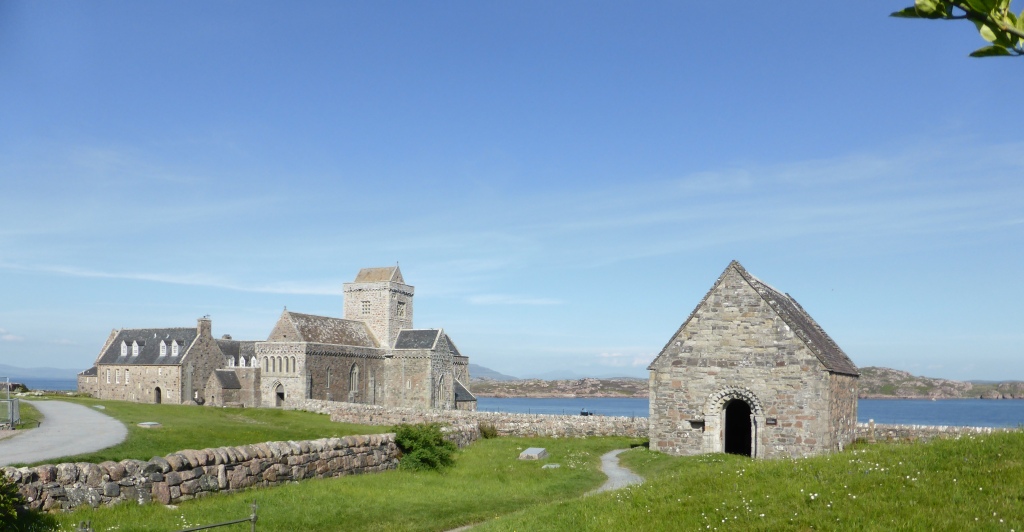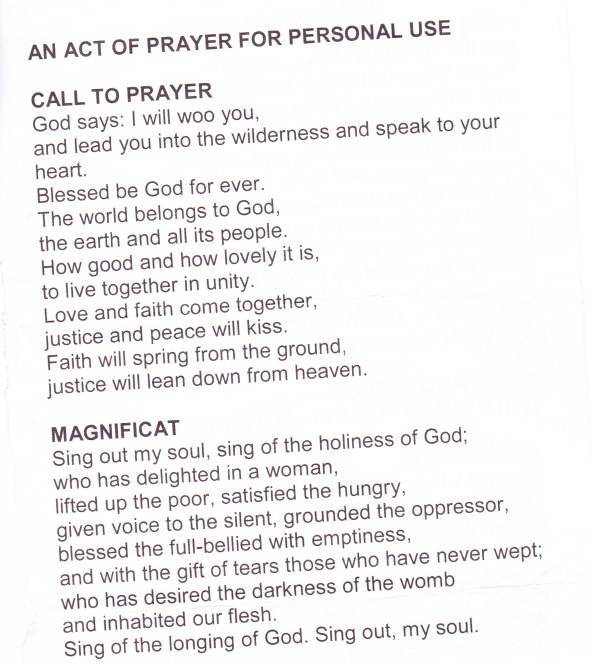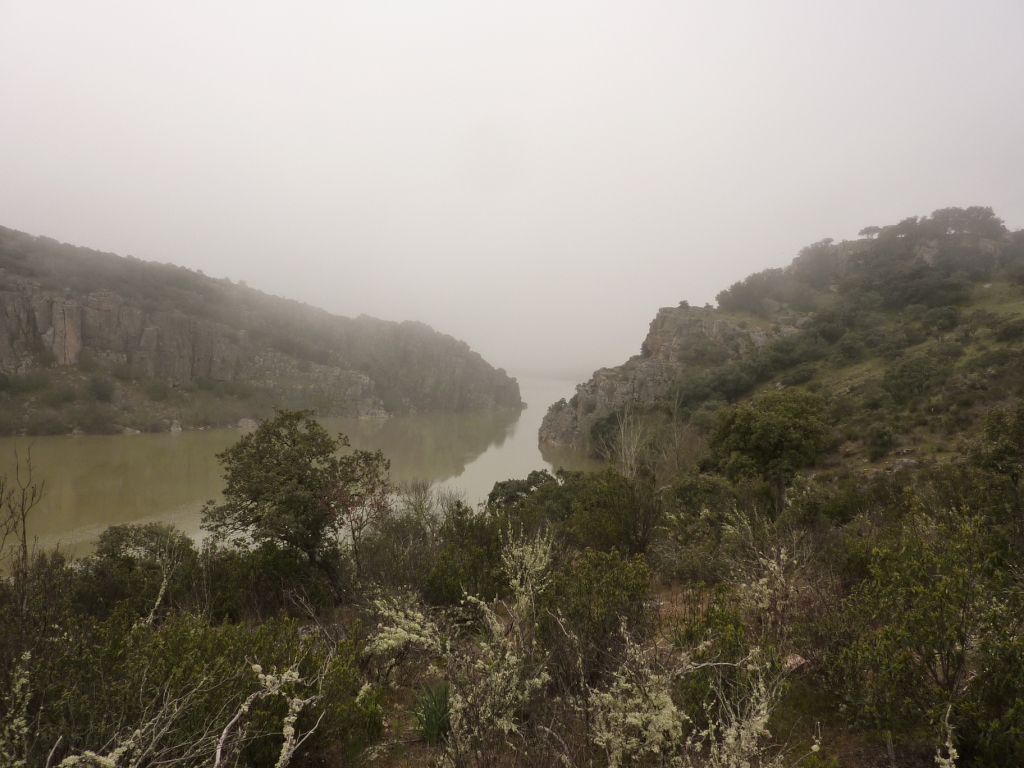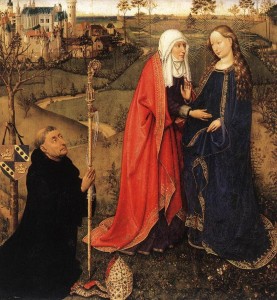Prayers can be surprisingly sensual and very joyful.
In the summer after finishing the Via de La Plata, I spent a week in the Abbey on the Scottish island of Iona where visitors make up the community for the time of their stay. I was so impressed with the quality of the daily prayers that I am now an associate member of the community. I have met other members on the Camino. We each carry the Personal daily prayers of the community. Here is how they begin:
I tend to get tired rapidly of set prayers. These, however, continue to stir me. They are sensual, freeing, and joyful. Phrases such as , “I will woo you and lead you into the wilderness and speak to your heart”, lend themselves to the Camino. Sometimes I change it to, “Here I am, you have wooed me and led me into this wilderness, now speak to my heart”, and then I sit in silence. A common piece of advice about prayer is to concentrate on your breathing. It is not just Eastern religions which advocate this: Ignatius of Loyola proposes it in the “Spiritual Exercises” (The Third method of Prayer). Often, when I start this first prayer I realise that I am taking in a huge breath and letting it our slowly, not consciously, but as a physical reaction to the prayer itself. The setting, in the wilderness, adds to the force of these opening lines. I have no set time for stopping so I can wait until a place suggests itself.
One of the great advantages of walking is that it is easy to stop. The earth is the church; the prayer says this in several ways.
I also like the idea of faith springing from the ground, since I feel, as a pilgrim, a special, rhythmic contact with the earth, step by step. I like to think faith is in plentiful supply because I use mine up very quickly.
The Magnificat
This Magnificat is bold and earthy, a working man’s Gloria. It sanctifies the carnal and ends with a the joyful, “Sing out my soul”. The mention of the gift of tears is very apt on the Camino. One of my posts will be about “the gift of tears” since it is common for pilgrims to suddenly find themselves tearful and at the same time very happy.
Most modern pilgrims are not poor, although some are without employment or security these days, but life on the Camino is simple. A rucksack contains all we have with us (including bank cards!!) The physical comforts are few. Pilgrims know moments of hunger, exhaustion and pain. In these, I become very attuned to my body. I marvel at the human body, its performance, its capacity to repair itself and to say what it needs. In this tired or aching, or satisfied or thirsty, or ready and perspiring fount of energy, God dwells.
[mapsmarker layer=”3″]
The Iona Magnificat is a free translation and the phrase “(God) has inhabited our flesh” fits perfectly with the rest. I was brought up to believe that “God is all around” watching everything I did and said. It took me most of my life to experience that God is actually within . It is walking the Camino which has brought home to me how much God inhabits my flesh. My body becomes present to me through constant walking; I pray, giving thanks for it, naming parts one by one, gratefully. My Catholic education had led me to understand otherwise, especially in relation to the production of testosterone. What a blasphemy!! It was no help at all to be told that sexual drives are to be resisted so instead, (or, rather, as well) I ate loads of sweets and cakes, (strawberry tarts and chocolate cup cakes mainly). I’d rather have known that God inhabits my flesh. After all, this is the foundation of what we call “The Good News”. Thus it is a topic to which I will return in this blog.





